Hello D-landers,
I thought it would be a good idea to archive some of our work here, as Instagram notoriously loves to delete marginalized creators’ accounts without warning.
These infographics are the first things Ayesha and I made together, and they really came out of our frustration at trying to make critical work alone. It sucks! Especially because the nature of social media apps is inflammatory and angry. It’s really hard to take that anger by yourself, much easier when you have someone else to be like, “damn, did you see this? lol”
Eventually we realized that Instagram was just not the place for the kind of conversations we wanted to have. We needed more space to circle around issues, more time for nuance and contradictions, and we wanted to be able to bring other voices in to talk about this stuff, too.
A podcast just made more sense — long-form audio requires deeper listening, where IG posts are all about quick takes and snap reactions. “The medium is the message,” right?
The messages here are still good, and maybe helpful if you like to consume info in bite-sized chunks. We’ll be expanding on all these ideas in this season of Disorderland!
1. Your Suffering Is More Than Just Biological
How psychiatry uses capitalism and fabricated science to drive societal individualism and fracture communities
2. Self-Pathologization is Capitalist Assimilation, Not Liberation
How viewing suffering as a brain disease blocks collective liberation
3. Psych Meds as “The Blue Pill”
How Corporations Keep Us Hooked to the Capitalist Matrix















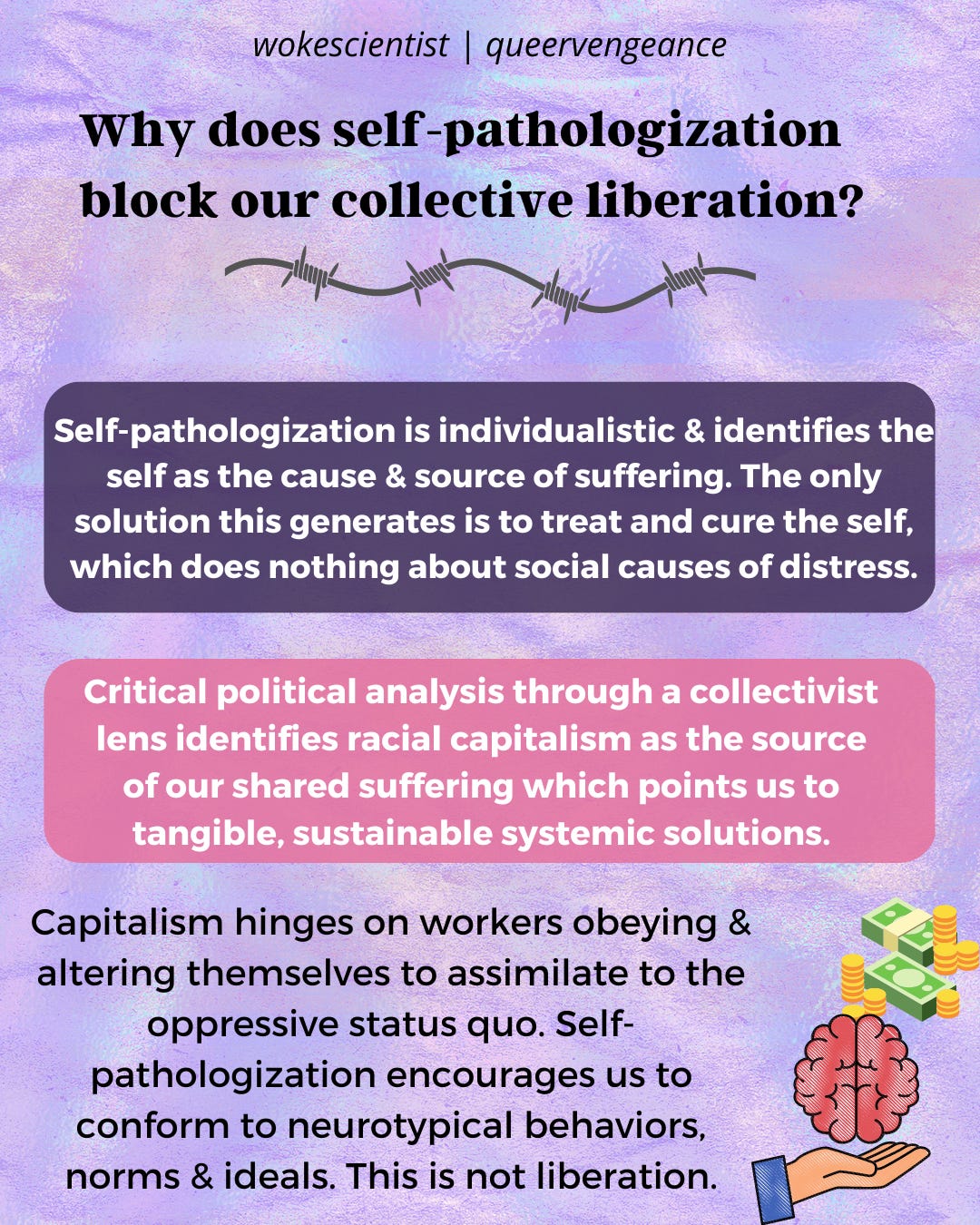
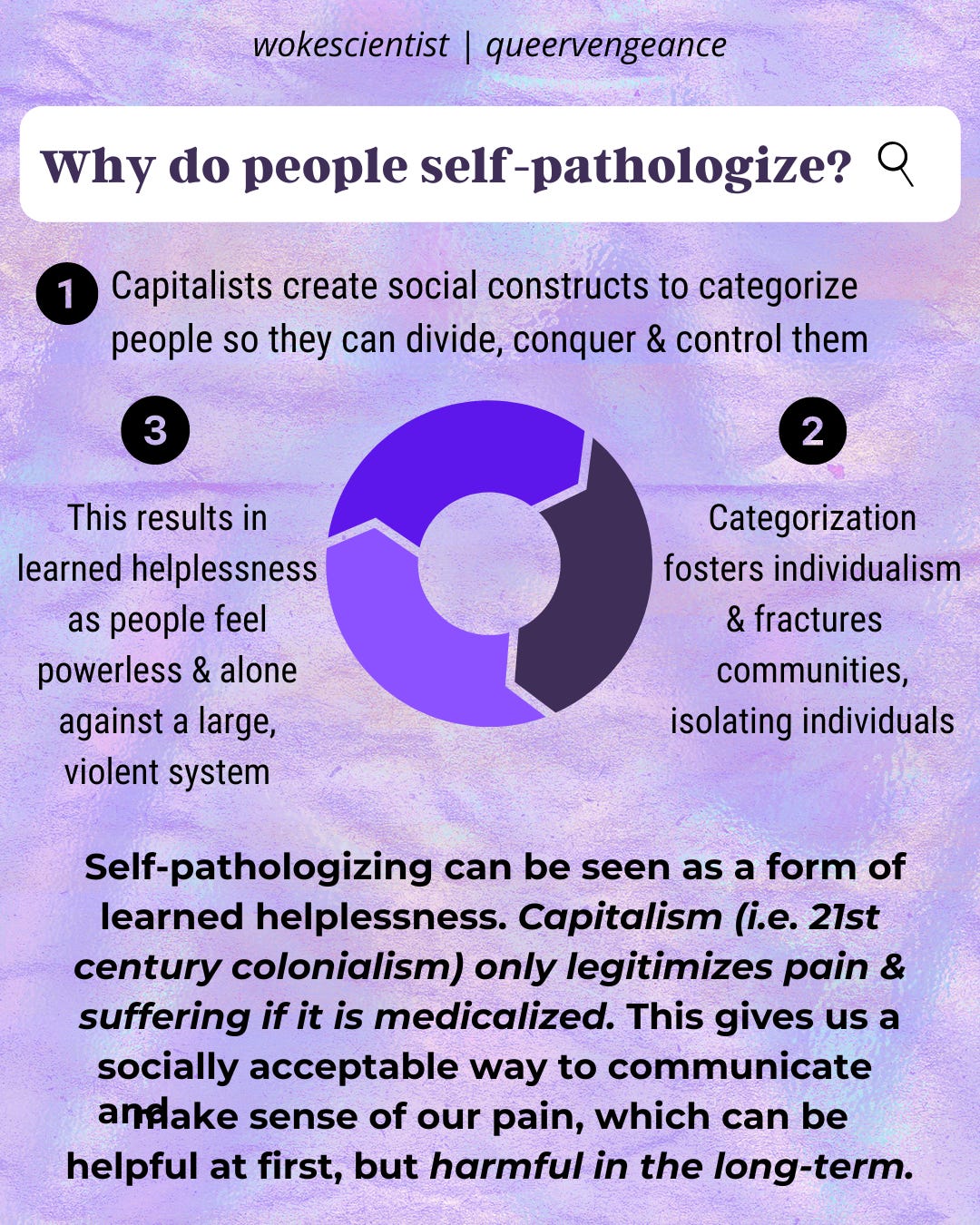


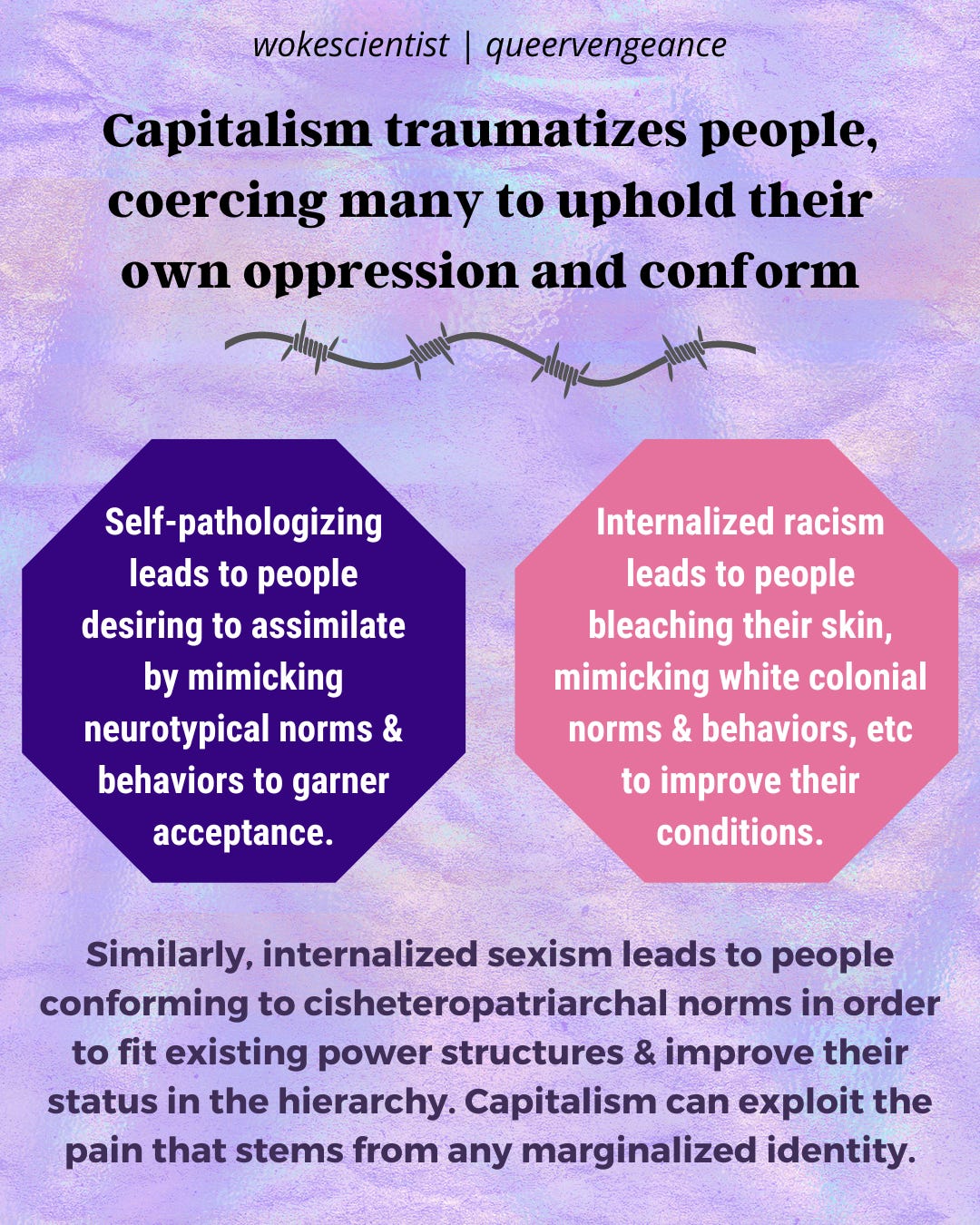



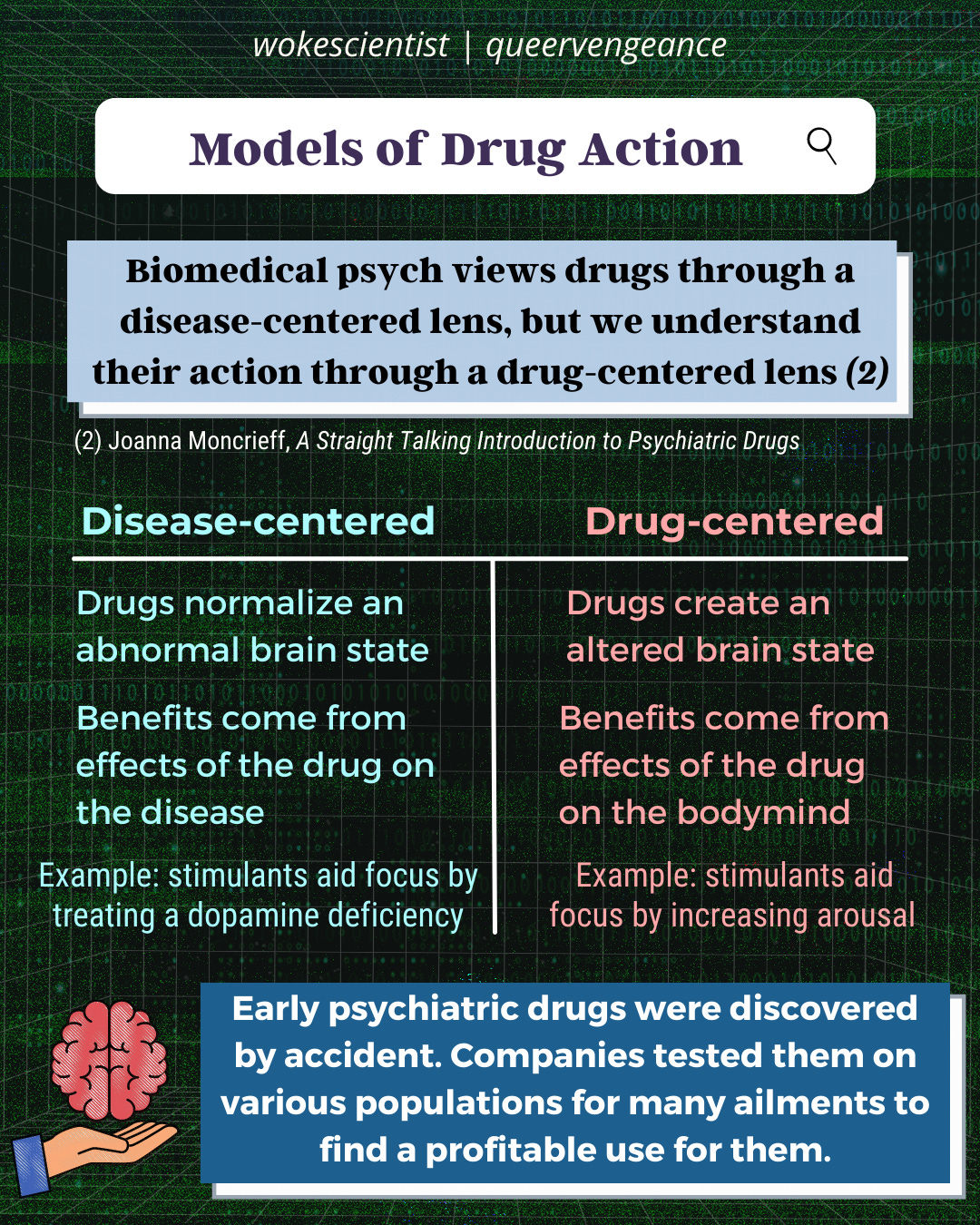

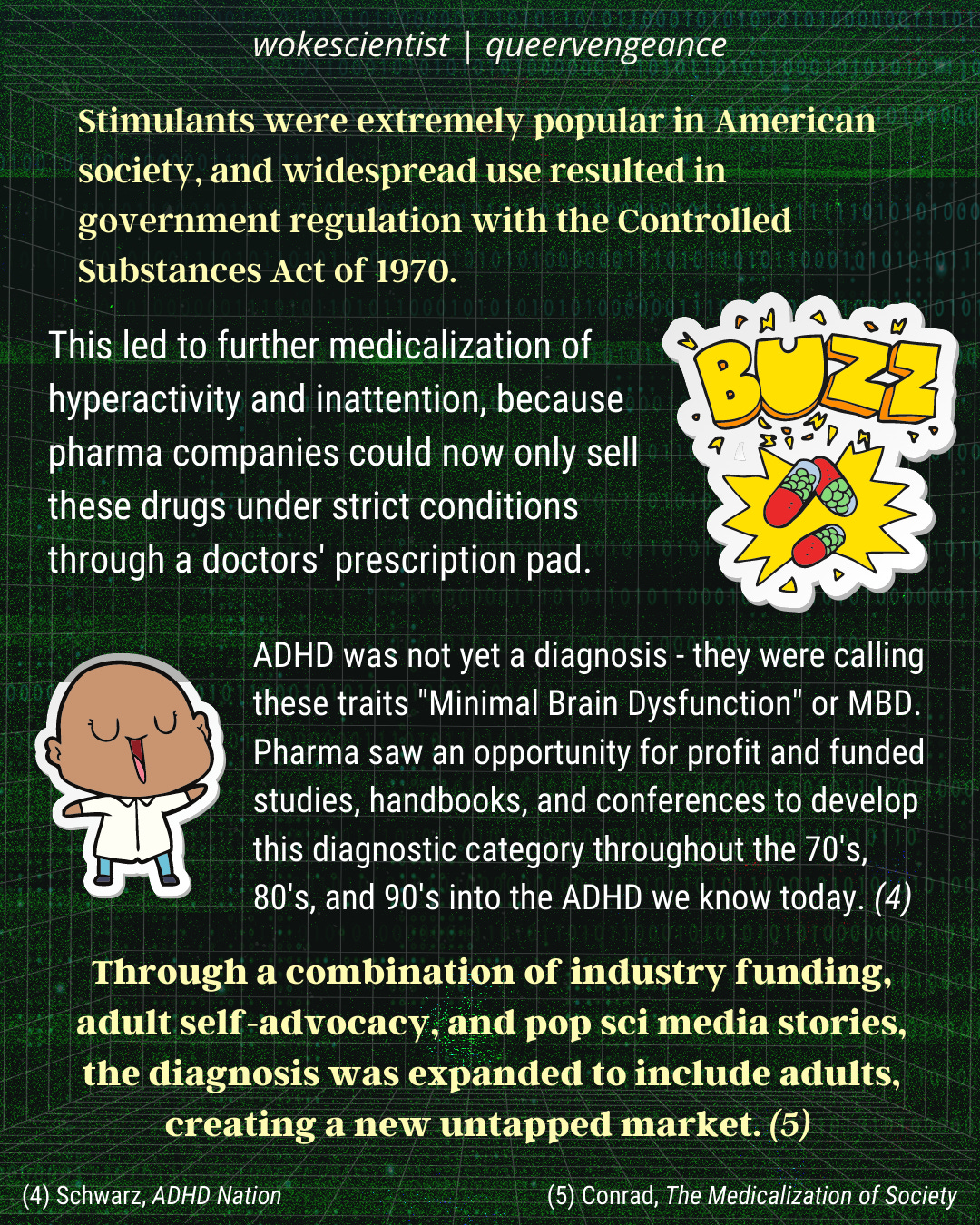





These visuals are incredibly helpful in my conceptualization of this perspective. Being someone who was “medicated” with stimulants from age 5-14, and then making the choice to try life without it in high school through my early adulthood (because let’s be real-the realization of the chemical dependence is an icky feeling) and re-learned how to do life without it. And then recently, making the choice to try medication again....this is some ✨spicy✨ food for thought. Thanks for sharing!
What a great consolidation of information! I’m reading Joanna Moncrieff’s book right now and her drug centered model makes so much sense to me.